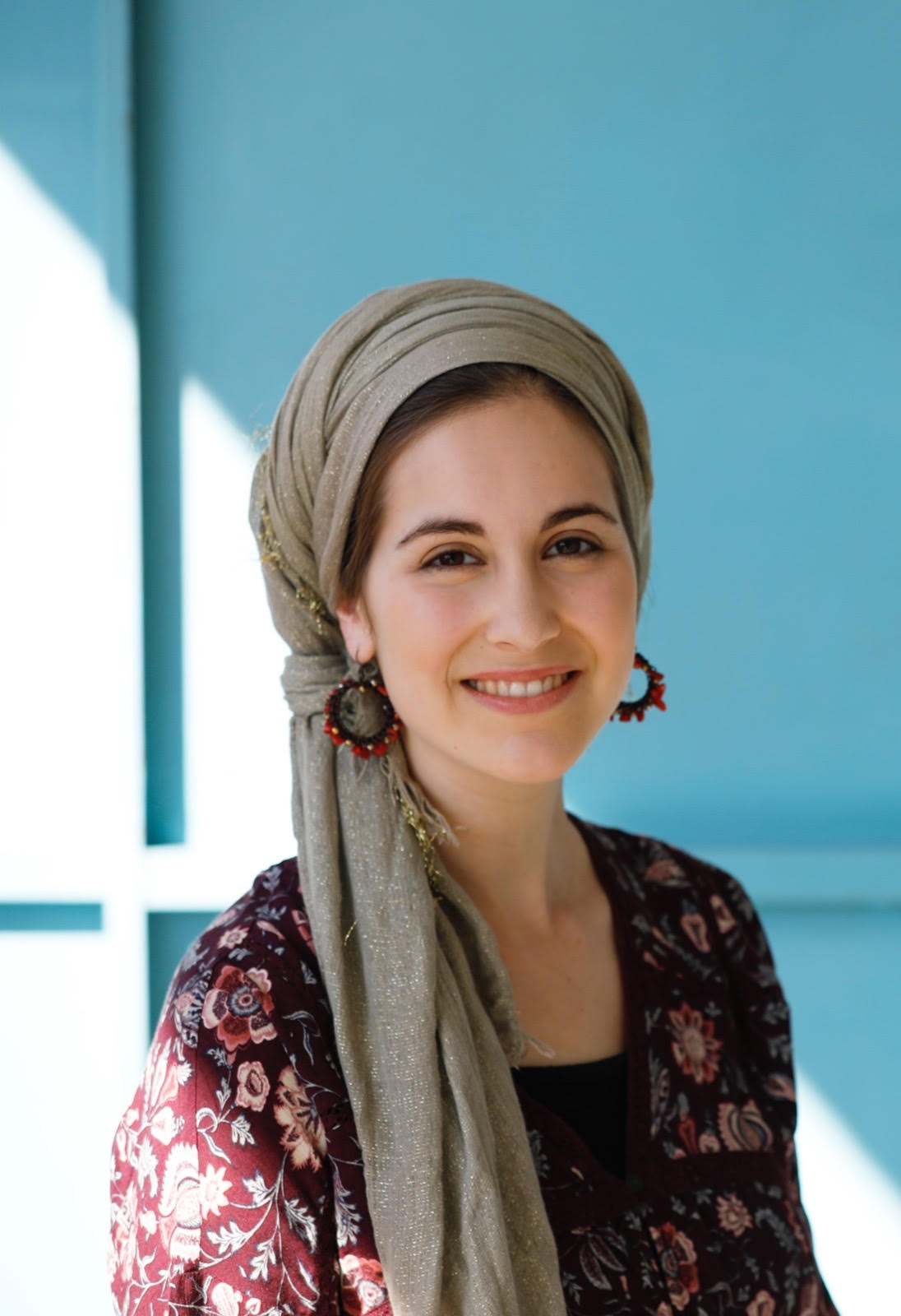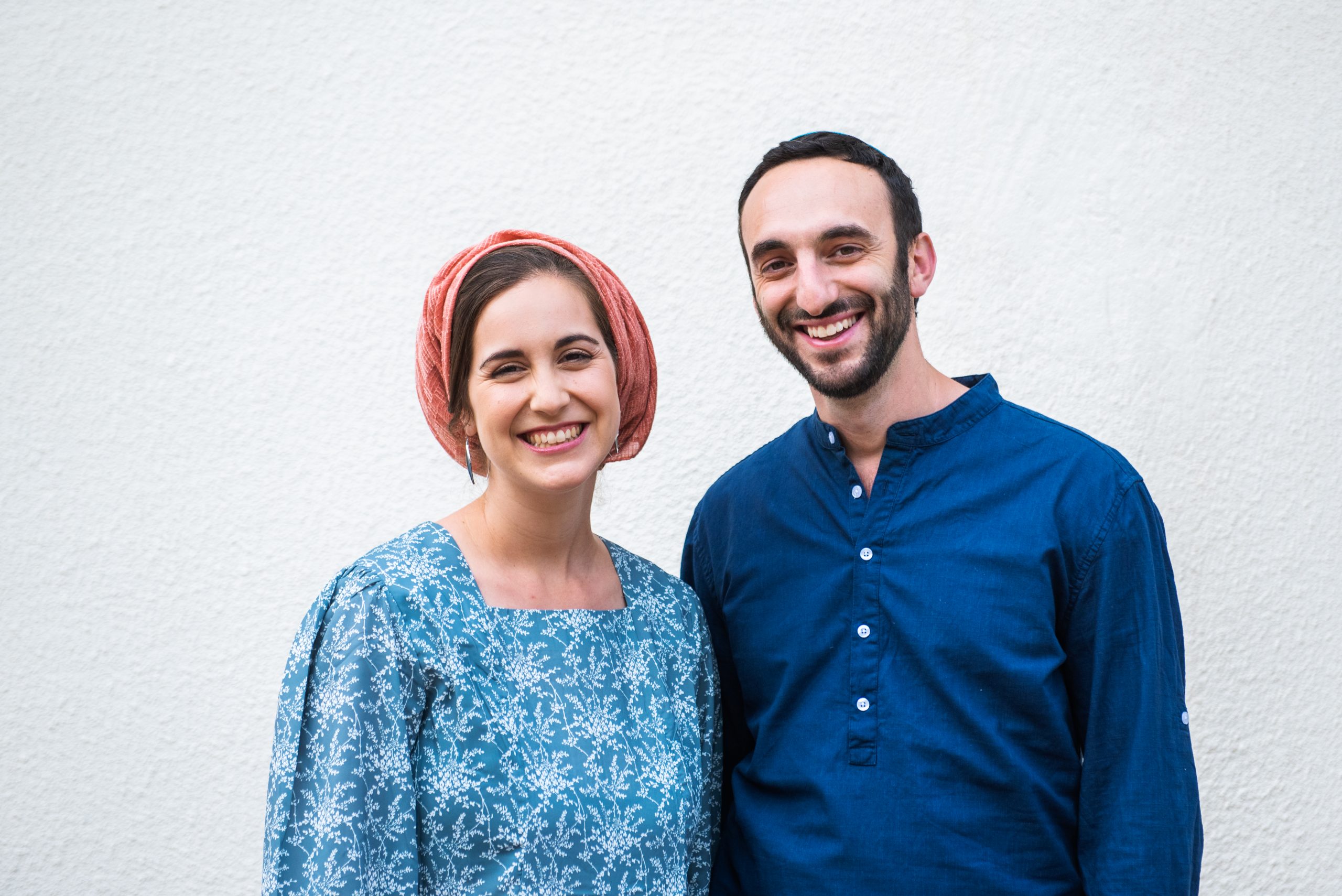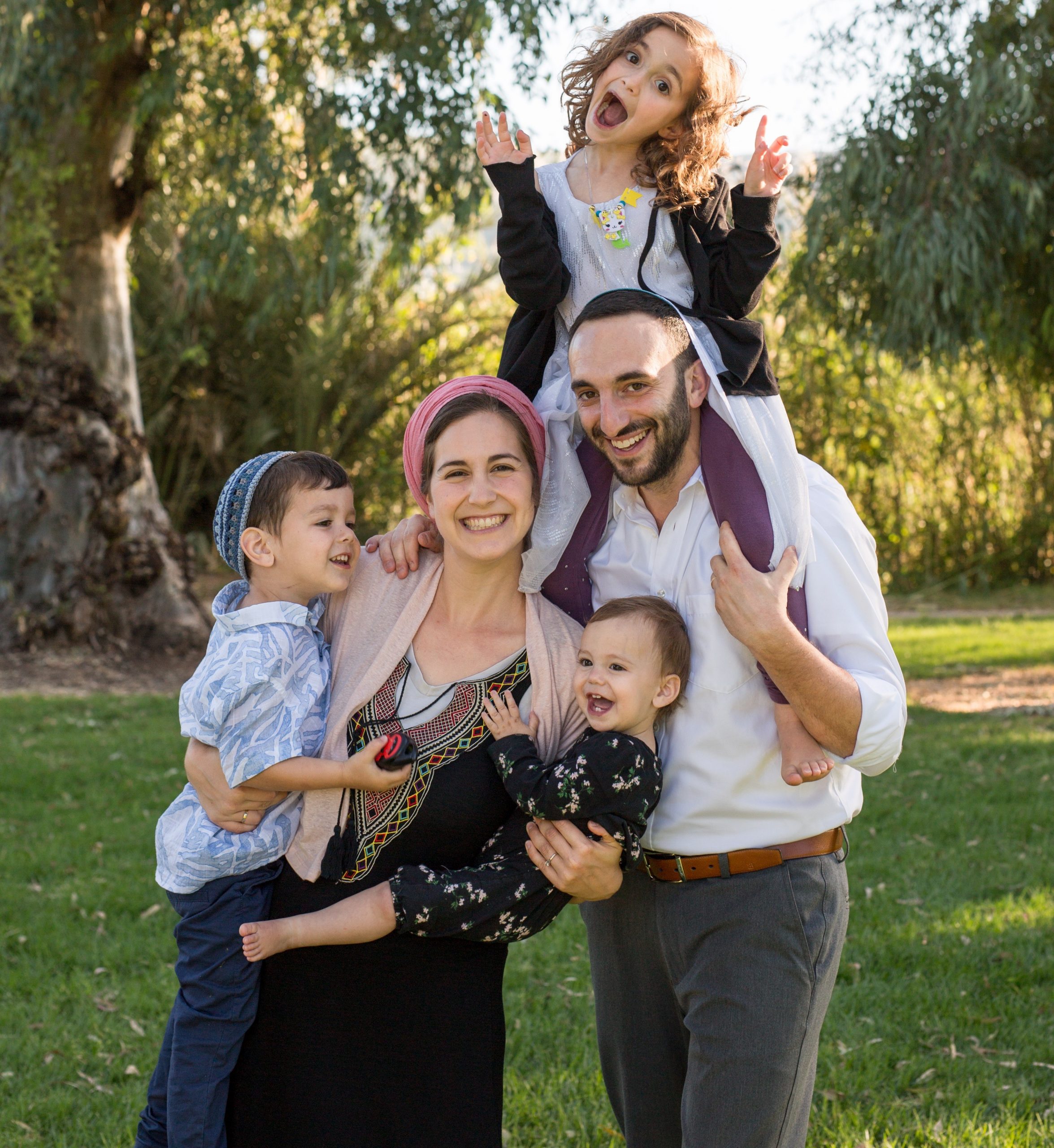A Not-So-Simple Truth
An interview with Nina Tokayer
By Penina Taylor
We all know that social media can be a powerful tool, especially for those looking to become celebrities. Influencers and “micro” influencers abound – trying to make their mark on the world and a living from their social media following. But we also know that social media success can be capricious and arbitrary. Videos or articles sometimes “go viral” with no rhyme or reason and there is no magic formula for producing a viral post.
No one knows this better than Nina Tokayer, the “nina” part of the musical duo Yonina. Even before Yoni and Nina decided to get married, they knew that music was going to be a main focus of their lives together. They also knew that posting on social media would be a part of the process. But what they didn’t know was that a hastily put-together video made in their car on their way to a concert would get over 40 million views and catapult them into the category of influencers.
Born and raised in Israel, to two American-born parents, Nina Tokayer easily lives in both worlds. She grew up in Jerusalem where she started singing at a very young age and music has always been a big part of her identity. Nina’s mother is a poet and so her earliest memories are of her mother encouraging her to write a song whenever she was sad or upset about something. Her mother urged her to channel whatever she was feeling into something creative and really fostered that side of her. Nina got her first guitar when she was only ten years old.
Just recently she was going through a box of things from her childhood when she came across a notebook from the fifth grade full of songs she had written. As she went through the notebook, she was amazed at how easily the tunes came back to her – as if she had sung them yesterday. But fifth grade was a long time ago and although she wishes she could write as prolifically now as she did back then, those songs reflect the struggles and feelings of a child, not the adult that she is now. Today she writes about life through the eyes of a mother.
Many of Nina’s songs are also written through the eyes of a woman of faith. Her parents became religious after they were married but before she was born, so Nina grew up in a religious home. Because of her parents’ own unique and meaningful Jewish journey, their home was always open to others of all walks of life. There was always a very diverse group of guests at their Shabbat table – religious, not religious, not Jewish – so there was a lot of explaining and inclusiveness, which of course imparted something special to her Shabbat experience growing up. It also imparted something special to her own sense of self as a young Jewish woman. When you see how much others want to know about what you have, the more you begin to value it yourself.
The eclectic exposure she had to people growing up also influenced the music she listened to, and she says that she loves making connections between different kinds of music.
Yoni, Nina’s husband, was also born to American parents who made Aliyah when he was five years old. Yoni grew up in Ra’anana but the two of them met in Tzfat (a long way from Jerusalem and Ra’anana where they grew up). Nina was doing her national service (sherut leumi) in Tzfat and Yoni was there as a tour guide, leading a group of high school students. He had brought them up to see the incredible views from the balcony of the place where Nina was working, and they had a short conversation there. A few months later they picked up that conversation and it didn’t take long for them to realize that this was a match made in heaven. Yoni also had grown up “musical” – he comes from a family of chazzanim (cantors) with a rich tradition of liturgical tunes and music was a big part of his home life.
At the time that Nina met Yoni, he was already working on his musical career – regularly performing as well as working on his first solo album. Realizing they had this passion for music in common, they started sharing their music with each other and after they were engaged they began to plan how they could create a life making music together.
Nina and Yoni were married in 2016 and very quickly began posting videos of themselves singing together on Facebook. The idea was to post home videos once a week, mostly just for friends and family. They began doing the videos when Nina was pregnant with their first child, Ashira. After the baby was born, they discovered they had a problem – whenever they wanted to record a video either she was sleeping and they didn’t want to wake her up, or she would be awake and wanted them to hold her. That’s how she started becoming a part of the videos. Nina says that they soon discovered that Ashira was actually the real star, and they were simply her backup. They found that whenever they did manage to make a video without her, they would get comments from their followers asking where the baby was.
One week they posted a cover of the song “One Day”. A few hours later, when they were in the car on the way to a concert, Nina decided to check their social media to see how the post was doing. She saw that there were a ton of comments on the post complaining that there was no sound in the video.
It turns out that the microphone wasn’t on, and they had uploaded a video with no sound. So they deleted the video. But wanting to be consistent with their weekly video upload, they decided to go ahead and make a recording right then and there in their car. They knew it wouldn’t be up to their normal quality, but at least they would have posted something. As it turned out, this accidental, “lame” recording went viral and reached forty million views. People all over the world watched the video.
Nina’s willingness to perform publicly has not only received praise from those who welcome a more modern attitude towards women within Judaism, it’s also received some criticism. There are many within the Observant Jewish community who believe that a woman performing in public is a violation of the laws of Kol Isha (halachic guidelines surrounding a woman’s voice and the prohibition against a man hearing the voice of a woman he is not related to). And while Nina’s willingness to perform publicly regardless of who might be listening may seem like a given to those who laud her courage, she says that it wasn’t always a given. Until she started performing with Yoni, Nina didn’t perform for mixed audiences – singing only for women.
After a lot of deliberation and consulting with several rabbis, as well as studying the sources for herself, she and Yoni decided that they would sing together publicly. Nina feels it’s important to point out that there are different paths within halacha (Jewish law) and it’s vital to “aseh lecha rav” – to find yourself a rabbi, who can help direct you on the path that’s right for you within halacha.
She explains that a big game changer for her in her journey was a psak (halachic ruling) that was issued by a rabbi that they were very close with at the time that they got married. In his psak, the rabbi explained that in his opinion, if a woman is singing and it’s done in a modest way, it’s permitted. He explains that nowadays men are regularly exposed to women’s voices and are not as sheltered as they might have been in the past, so it doesn’t have the same intimate connotation as it might have once had. It really depends on the context and the words, and how the singing is done. This really resonated with her.
Everyone has their own journey, and not only are different choices right for different people, but at different times on your own journey you may make different choices that are right for you at that time.
– Nina Tokayer
Nina says that she has a lot of female friends that are singers who only perform for women, and she wants to make it clear that she has a lot of respect for them. Singing for a living is a difficult career choice to begin with, and choosing to stand by one’s convictions which essentially cuts your potential audience in half is not a simple one. But there are many successful female singers who have done so. Nina says that’s one of the things that she loves about the Jewish world – it’s so diverse, and so dynamic, even within the “religious” world itself. There are just so many ways to be Orthodox. But everyone has their own journey, and not only are different choices right for different people, but at different times on your own journey you may make different choices that are right for you at that time.
It’s not for modesty’s sake that Nina is happy to have her husband as her singing partner. Music performance can be a bit of an emotional roller coaster ride, Nina says, and she’s really happy to have someone to share it with.
When they met, although Yoni was already working on his first album, as they explored how they each wanted to proceed, the decision was made to collaborate.
Yoni felt that by combining their music and working together, the end result would be more powerful. So, they ended up taking the songs they each had already recorded, adding the vocals of the other singer to the already existing piece, so that it became a true collaboration. The result was a first album that was a combination of songs written and sung by both of them, songs that were kept as they were originally recorded, and some songs that they wrote and performed together.
When they began, they had a plan and vision of how they were going to build their music business, but their online following grew much faster than they could have ever imagined. 5,000 followers turned into 100,000 followers, and people just connected with them. At this point they’ve already released two albums. Their first album, “Emet Pshuta” (Simple Truth) came out in 2017, and their second album, with songs inspired by their children, about growing up, family and life was released in June 2022. It’s called, “Somewhere in the Middle ” and there are songs both in English and in Hebrew, designed for both adults and children. The albums can be purchased on iTunes, Spotify and other streaming platforms, but also on their website yoninamusic.com. Yoni and Nina also perform live all around the world, for events in Jewish communities.
When asked what advice she would give to a young woman who is talented musically, but facing a lot of opposition regarding singing in public, she said that although it may sound cliché, listening to your heart is a huge part of living a healthy life, a genuine life, but also a spiritual life. She believes that our relationship with Hashem comes directly from the divine spark that is within each of us. She says that the closest thing we have nowadays to prophecy is our ability to tune in and listen to the sense of calling that we have inside of us, the drive, the passion, the things that spark us up and make us feel alive – that’s the closest thing we have nowadays to prophecy and connecting to our true essence. So it’s really important to give that space and to get in tune with that, to believe that it’s not incidental, but that there’s a reason that this thing makes you feel that way, that there’s something there that the world needs from you, it’s part of your purpose.
Regarding what people will say – Nina says that we are programmed to focus on negativity, so we need to work on reminding our brain that for every person who doesn’t like what you are doing, there will be many more who connect with it, and appreciate what you are doing. Focus on the positive, and learn to block out the negative. Listen to yourself – how do you feel about what you are doing? If you feel like it’s the right thing, then just keep going, knowing that you are making a difference in people’s lives. And that’s a not-so-simple truth.





